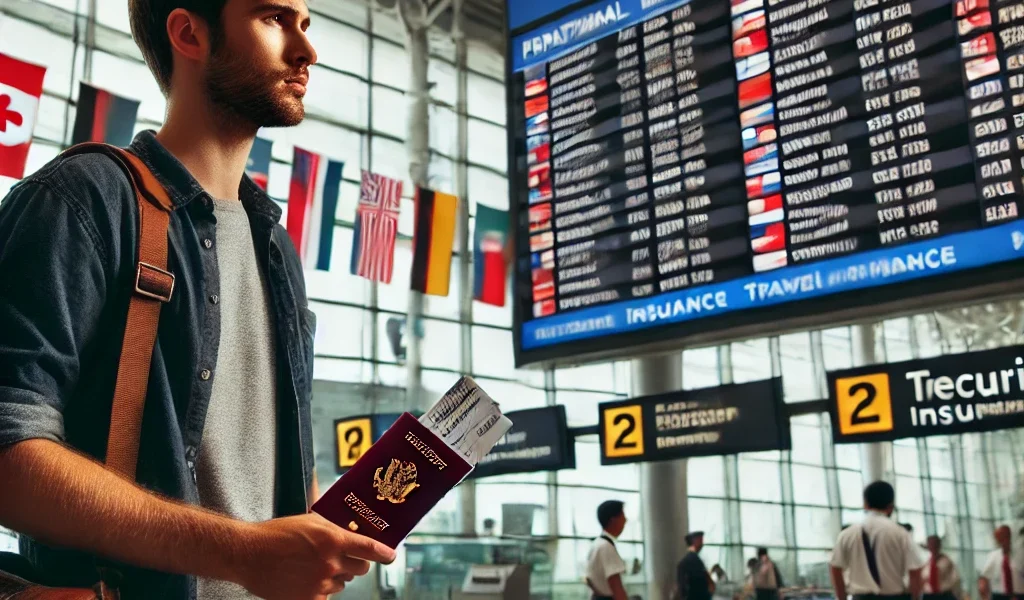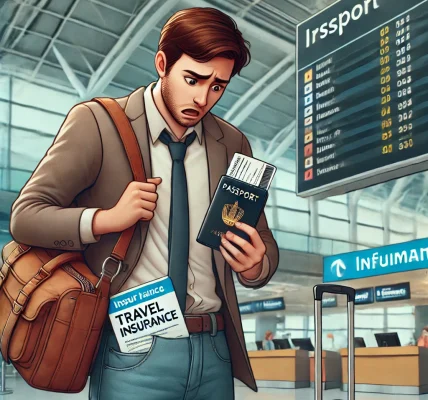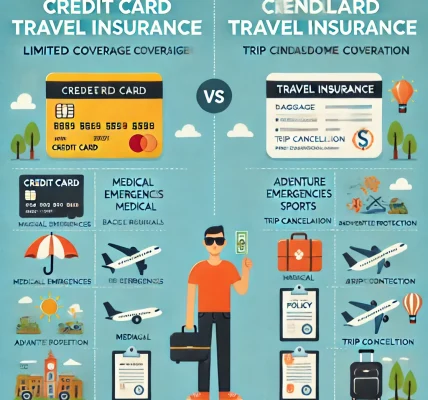Introduction
Traveling to regions experiencing political unrest can be risky, but sometimes it’s unavoidable—whether for work, study, or personal reasons. Unexpected riots, protests, government instability, or even martial law can lead to trip disruptions, safety concerns, and financial losses. Fortunately, travel insurance can provide critical coverage to protect you in such situations.
In this guide, we’ll explore how travel insurance works during political unrest, what’s typically covered, and how you can ensure maximum protection.
Understanding Political Unrest and Its Impact on Travelers
Political unrest refers to situations where instability affects a country’s governance, law enforcement, and public safety. Common forms of political unrest include:
- Riots and Protests – Large-scale demonstrations that may turn violent.
- Civil Unrest – Widespread disorder affecting public order.
- Governmental Instability – Changes in leadership, curfews, or martial law.
- Terrorist Attacks – Violence that may lead to border closures or mass evacuations.
- Military Conflicts – Armed confrontations affecting safe travel.
These events can result in canceled flights, hotel closures, personal injury, or forced evacuations. Without proper insurance, you could face significant financial losses.
Does Travel Insurance Cover Political Unrest?
Yes, but coverage varies depending on your policy. Here are key benefits to look for:
1. Trip Cancellation and Interruption Coverage
- If political instability forces you to cancel your trip before departure, your insurance may reimburse non-refundable expenses (flights, hotels, tours).
- If unrest begins while you are abroad and you need to leave early, trip interruption coverage can help cover additional expenses to return home.
2. Emergency Evacuation and Repatriation
- Some policies cover emergency evacuation if a government order or your country’s embassy deems it unsafe to remain.
- Repatriation may be included to bring you back home if the situation escalates.
3. Medical Expenses
- If you’re injured during a political event (such as a riot or violent protest), travel insurance can cover medical treatment costs.
- Some policies include medical evacuation if local hospitals are not safe or equipped to treat you.
4. Baggage and Personal Property Protection
- If looting, theft, or destruction of property occurs due to unrest, your travel insurance may reimburse the value of lost or damaged items.
5. Accidental Death and Dismemberment (AD&D)
- In extreme cases, if a traveler is severely injured or dies as a result of political violence, certain policies provide compensation to the insured or their beneficiaries.
6. 24/7 Emergency Assistance
- Many travel insurance providers offer hotlines to assist with locating safe accommodations, arranging emergency transportation, and providing guidance on dealing with authorities.
What Travel Insurance May NOT Cover During Political Unrest
While travel insurance offers protection, it has limitations. Common exclusions include:
- Traveling Against Government Warnings – If you travel to a country under an official travel advisory (e.g., a U.S. State Department Level 4 warning), your policy may not cover you.
- Participation in Protests – If you willingly engage in demonstrations and get injured, coverage may be denied.
- Acts of War – Many policies exclude full-scale war situations unless explicitly stated.
- Deliberate Law Violations – If you break local laws during a crisis, your insurance may not protect you.
- Late Purchase of Insurance – Buying insurance after unrest begins may not qualify for coverage.
How to Choose the Right Travel Insurance for Destabilized Regions
To ensure adequate protection, follow these steps when selecting travel insurance:
1. Check Government Travel Warnings
- Refer to official travel advisories from your home country to understand risks and whether insurance will cover travel to your destination.
2. Look for Political Evacuation Coverage
- Not all policies include emergency evacuation due to political unrest—opt for one that does.
3. Opt for Cancel for Any Reason (CFAR) Coverage
- CFAR policies allow you to cancel for reasons beyond standard coverage, including personal safety concerns related to political unrest.
4. Verify Medical Coverage Limits
- Ensure your policy covers emergency medical treatment and evacuation, especially if local hospitals are unreliable.
5. Understand Policy Exclusions
- Read the fine print to confirm what situations are not covered, such as government-imposed lockdowns or border closures.
6. Use a Reputable Provider
- Choose insurers with experience in high-risk travel, such as Allianz, World Nomads, or International SOS.
What to Do If You Encounter Political Unrest While Traveling
If you find yourself in a politically unstable situation:
1. Stay Informed
- Monitor local news and embassy alerts for real-time updates.
- Register with your country’s embassy for emergency notifications.
2. Avoid Public Demonstrations
- Even peaceful protests can turn violent—stay away from large gatherings.
3. Follow Local Laws and Curfews
- Some governments impose strict measures during unrest; follow all instructions from local authorities.
4. Contact Your Insurance Provider Immediately
- Notify your insurer to determine coverage for evacuation, medical needs, or trip interruptions.
5. Keep Important Documents Accessible
- Have copies of your passport, visa, and insurance policy in both digital and print formats.
6. Arrange Safe Transportation
- If evacuation is necessary, work with your insurer and embassy to secure the safest route.
Conclusion
Political unrest can pose serious risks to travelers, but with the right travel insurance, you can mitigate financial losses and ensure your safety. Understanding what is covered, choosing the right policy, and staying prepared can make all the difference. Before traveling, research your destination’s political climate and select a policy that provides the best protection for your needs.
Would you like recommendations on travel insurance providers offering political unrest coverage? Let us know in the comments!




